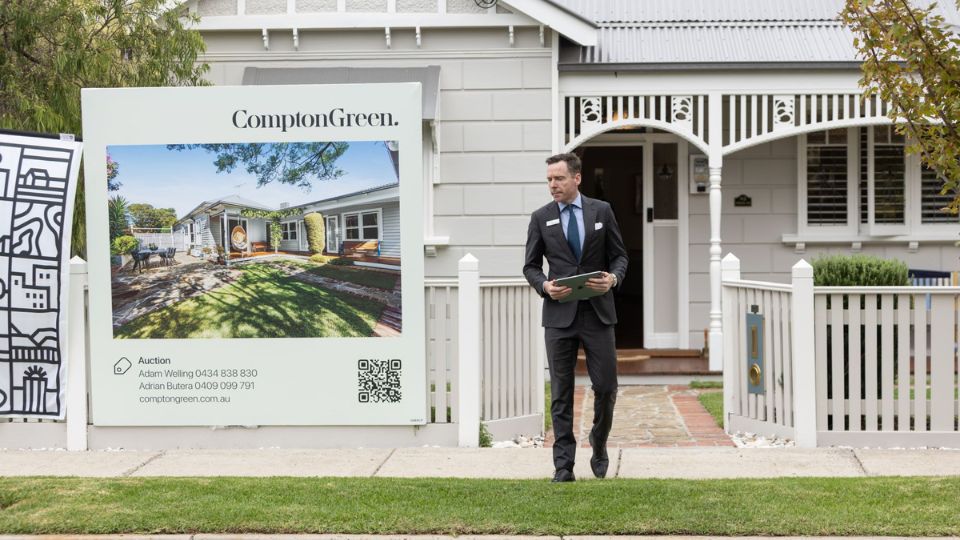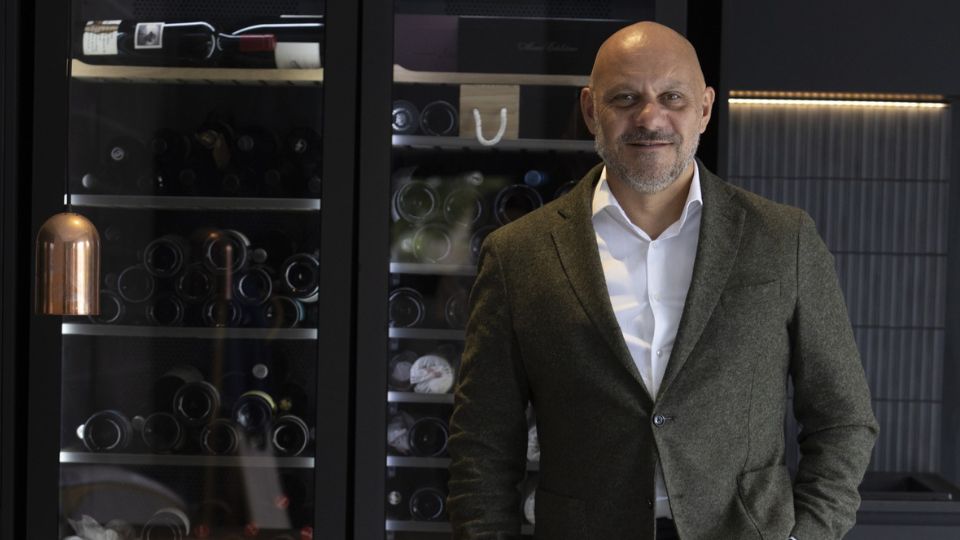Real estate is not an easy business to sustain across decades, let alone close to a century. Markets change, technology reshapes how buyers and sellers behave, and the pressure to scale or merge can tempt independent agencies to give up their identity.
Yet Melbourne-based Compton Green is approaching its 100-year milestone in 2026 with no plans to slow down or sell out. For Managing Director Adrian Butera, heritage is important, but relevance is non-negotiable.
“It’s extraordinary to be part of an organisation that has been trusted by its community for a hundred years,” Adrian says.
“But you can’t survive that long by staying the same. Longevity isn’t about doing the same thing for 100 years; it’s about listening, evolving and making sure your business remains relevant to the people you serve.”
Adrian is the third leader in Compton Green’s long history.
He took over the business 23 years ago from Chris Angourias, who had guided it for 35 years, following the the founders Thomas Compton and Edgar Green.
Looking back on almost a quarter of its life under his watch, he’s clear that the company’s ability to endure comes down to people and a willingness to evolve.
“I felt like I was the incumbent leader; I didn’t start this business, but I’ve had to honour it,” he says.
“Few companies last a hundred years in any industry and the reason we’re still here is because of the people we’ve had along the journey.
“Some have been with us a really long time, some for shorter periods but have made a huge impact. It’s really an acknowledgment of that.”
Adrian believes culture doesn’t happen by chance.
“I’m a big believer in you attract the people you deserve,” he says. “Chris and I came together because we were similar … we were good to people, good to the community. One of the first things he did was bring me along to a Rotary meeting. That really started to forge who we were.”
Creating a safe, supportive workplace has also been deliberate.
“It’s about so many little one percenters,” he says.
“This morning I had coffee with a client. When I paid, I bought three muffins, brought them to the office, chopped them up and put them out. People don’t stay because of muffins, but every little one percenter chips away at culture. For every muffin I give them, they give me two or three in return in another way.”
Innovation as a survival strategy
Many agencies have faded because they were good at listing and selling but failed to think bigger, Adrian believes.
“We remain very innovative,” he says. “I love sharing the vision. Not all ideas or innovations get created, but we have one and we evolve it. Some companies just get on with listing and selling really well, but without a vision beyond that.”
One example is CGS (Compton Green Enterprise Services), launched more than a decade ago to provide property management for government clients.
“At one stage and even now, we’re the biggest property management company for the state of Victoria,” Adrian says.
“We manage properties for the Victorian state government, and now we have state, local and federal government as clients. It’s not directly linked to Compton Green, but it’s wholly owned by us. We saw the opportunity, tendered for it, and built something that allows us to compete against companies 100 times our size.”
To stay competitive in that space, Compton Green has had to push beyond traditional real estate comfort zones.
“We can’t sit still,” he says. “For example, I had to send one of our team to a rail safety course so we could work in rail corridors. You have to keep evolving and learning things most other real estate agencies wouldn’t do.”
Preserving the right parts of heritage
For Adrian, heritage isn’t about clinging to the past; it’s about preserving what still matters. “We need to preserve the way we treat our people,” he says.
“Give them the ability to influence the business. Preserve a style of leadership that’s curious – to see who within the business wants to contribute and help lead a department or division. That’s critical. I think that’s the reason we’re here today after ninety-nine years.”
That philosophy also shapes how the brand is presented to the market. As part of the lead-up to 2026, Compton Green recently rebranded.

“We wanted to refresh and make sure we were on track,” Adrian says. “We captured some history, but the look and feel needed to engage people beyond a hundred years.”
Alongside the rebrand, the company is introducing new initiatives, including a strong focus on environmental and social impact.
“If we’re going to talk the talk, we need to walk the walk,” he says. “Businesses need solar, proper recycling, a social procurement policy – if there’s a choice between a coffee shop that’s just a business and one that’s a social enterprise, we should support the social enterprise. This may be common in big business but not in small suburban agencies. We want to stand out in that way.”
Tech matters, but people matter more
While technology is shaping real estate’s future, Adrian is cautious about chasing every new tool.
“Tech continues to play a huge role and influences our businesses every day,” he says. “But the real challenge is the right tech. It’s such a busy space; how do we whittle down to the right AI tool, the right CRM, the right companies to align with?”
For Adrian, those partnerships need to feel human.
“You attract what you deserve, and I want to be around good people,” he says. “You can give me the big fancy database that sends appraisals every five minutes, but if the account manager only wants to meet on Zoom, I fail to have that connection. And that’s who Compton Green is. We are far more engaging. We need the coffees, the lunches. Tech is important, but connection comes first.”
Finally, as 2026 approaches, Adrian sees the centenary not as an endpoint but a launchpad.
“It feels like a start-up again in some ways,” he says. “CGS is growing. We currently have 50 people across three offices; it won’t be too long before it’s 100 people over six offices. We’re building market share in Melbourne’s inner west, but doing it by being smarter and better for our people and our clients.”
His advice to other long-established independents is clear.
“Stay independent and competitive by looking after your people,” Adrian says. “Our brands and our businesses are people. If you don’t look after them, it will be difficult to have a long-lasting business in this industry.”
For Adrian, the past matters, but the future matters more: “We’re proud of our history,” he says, “but what really matters is being relevant tomorrow.”

